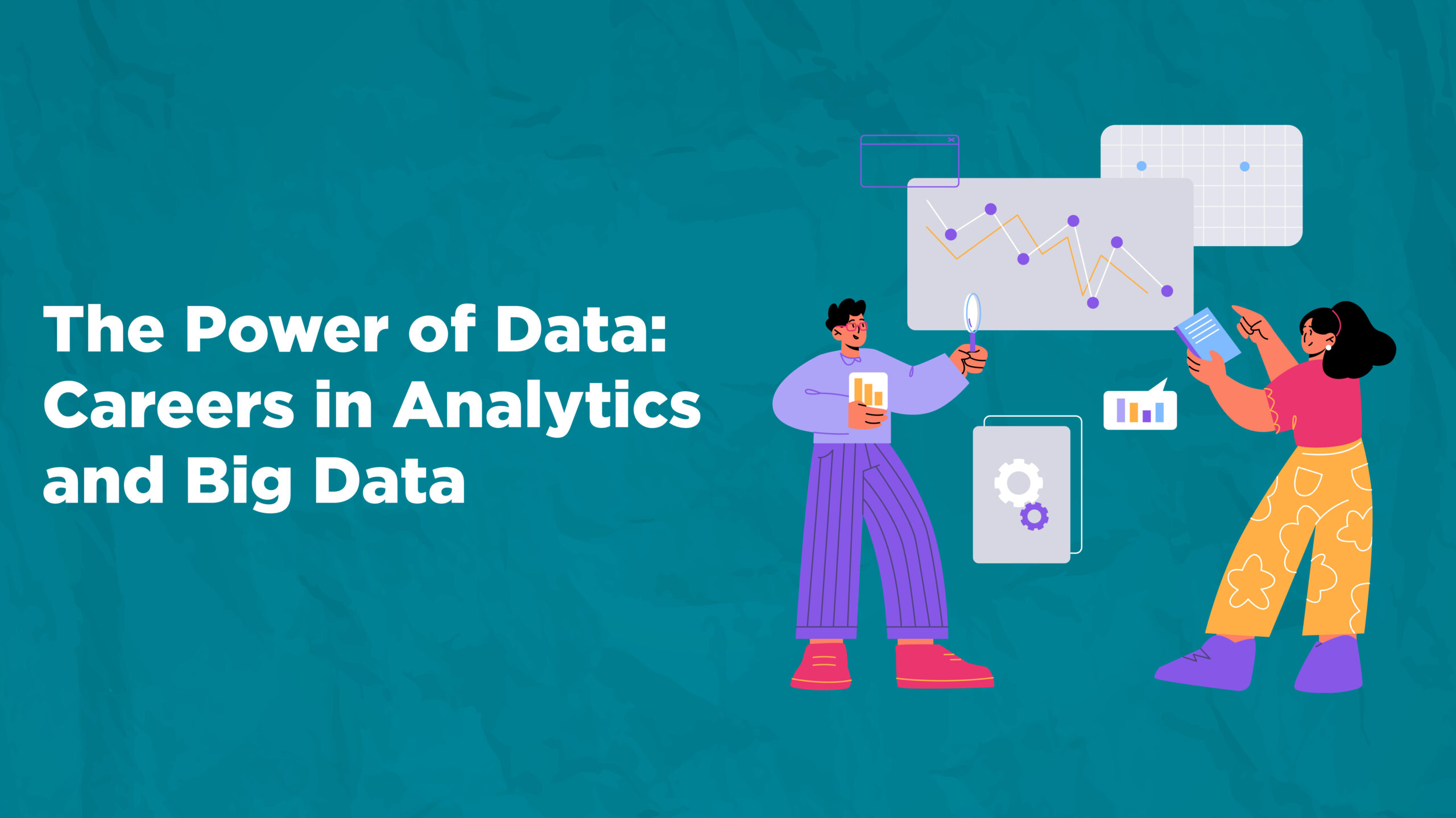Unlock the Data Universe: The Careers in Data Analytics and Big Data in 2024
why data analytics? Have you ever gazed at the night sky, overwhelmed by the sheer number of stars (estimated 100 billion in our galaxy alone!)? That’s data – an infinite expanse of information waiting to be explored and understood. Having worked as a data engineer for ten years, I have seen firsthand the transformational potential of data. The fascinating thing is that you may participate in the invisible hand that is reshaping our planet with data analytics! Your road map to an exciting career in data analytics and big data is this blog. Irrespective of your level of experience, we will explore the vast career prospects, and arm you with the means to embark on this journey driven by data. What is Data, and Why Does it Matter? Although data is essential to the modern digital era, it goes much beyond social media posts and online transactions. Here’s a glimpse into the diverse data landscape: Sensor Data: Every click on your phone, swipe on a fitness tracker (think about the data collected on your daily steps!), or thermostat adjustment generates data. The International Data Corporation (IDC) predicts the global data sphere will reach a staggering 175 zettabytes by 2025 (a zettabyte is a mind-boggling number, equivalent to trillions of gigabytes)! Financial Transactions: Every credit card swipe and online payment creates a data trail. This data is used for fraud detection, risk management, and even personalized financial recommendations. Scientific Research: From astronomical observations capturing the birth of stars to medical trials testing new drugs, data is the fuel for scientific discovery. The Large Hadron Collider, for instance, generates 60 petabytes (another massive unit of data) of information every year! Social Media: Every post, like, and comment paints a picture of our online behavior. Companies use this data to understand customer preferences, target advertising campaigns, and even predict social trends. Data analysis is the art of using powerful tools to extract meaning from this vast ocean of information. By analyzing data, we can uncover hidden patterns, answer complex questions, and make data-driven decisions that improve our world. The Rise of Analytics and Big Data Imagine trying to analyze the night sky with the naked eye. That’s what working with limited data was like. But the game has changed: The Dawn of Big Data: The ability to store and process massive datasets (petabytes and beyond) has revolutionized data analysis. Traditional data analysis methods simply couldn’t handle this volume of information. Advanced Analytics Tools: Powerful software like Hadoop and Spark help us crunch massive datasets and uncover hidden patterns. These tools allow us to analyze data in real-time, enabling faster decision-making. Why Pursue a Career in Data? The reasons are as compelling as the data itself: High Demand & Lucrative Opportunities: The Bureau of Labor Statistics predicts a 26% job growth for data analysts and scientists by 2031, with a median annual wage of $90,000 for data analysts in the US. This high demand is fueled by the ever-growing need for data-driven insights across all industries. Impactful Work: Your skills can revolutionize industries. From optimizing marketing campaigns to predicting crime rates or optimizing traffic flow in smart cities, your work can make a real difference in people’s lives. Intellectual Challenge: Crave a mental workout? Data analysis is a constant puzzle, urging you to innovate and think critically. You’ll be constantly challenged to develop new methods for analyzing complex data sets. Ready to Dive In? A Step-by-Step Guide Data Analytics Here’s your roadmap to a data-driven future: Find Your Spark: What ignites your curiosity? Does healthcare fascinate you? Are you passionate about finance or marketing? Identifying your passion will guide your learning path and help you specialize in a particular industry. Build Your Foundation: Start with the essentials. Courses in statistics, probability (which helps you understand the likelihood of certain events happening in your data), mathematics, and computer science will equip you with the core skills needed for data analysis. Many free online courses on platforms like Coursera and EdX are a great starting point. Master the Tools: Learn in-demand software like Python (a versatile language used by companies like Netflix and Spotify for data analysis), R (a favorite among statisticians for its data visualization capabilities), and SQL (the language for querying databases and extracting specific information). Numerous online tutorials, coding boot Explore the program of business analytics

